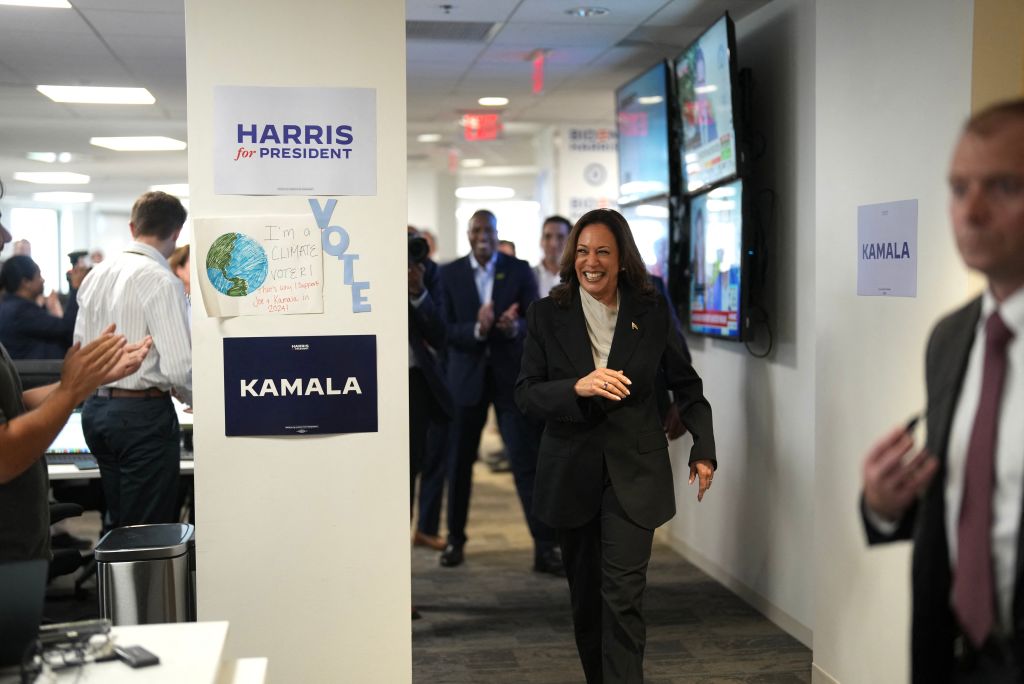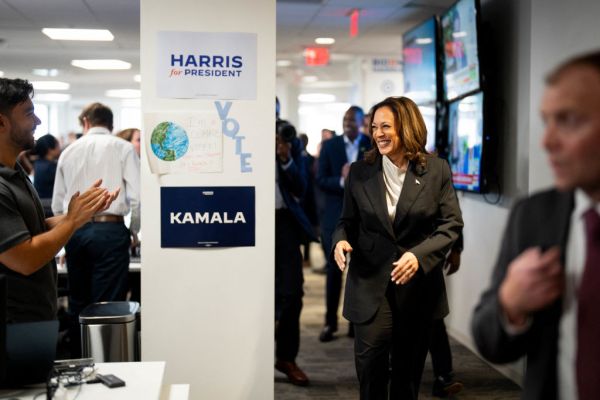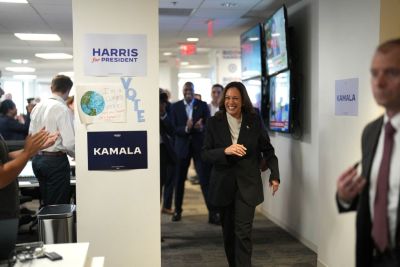Alas, the coronation of Kamala Harris as the Democratic nominee appears complete.
Democrats are surprisingly ecstatic with the decision, and Republicans—or at least the Trump campaign—are very cross about it, complaining that democracy has been subverted. This is something of a reversal, given that Republicans had argued that Biden was too infirm to be president while Democrats, before last month’s disastrous debate, contended that he was the only candidate to beat Trump. Democrats then and Republicans now both claim ignoring the will of primary voters is an affront to democracy.
But let’s put the partisan spinning aside and ask a very basic question: What’s wrong with a party ignoring, or even abolishing, primaries?
Most defenses of the primary process fall into three broad categories: the lazy, the idealistic, and the practical.
The lazy answers boil down to the idea that primaries are the way we’ve always chosen nominees. I’ve been amazed by how many people responded to the idea of the Democratic convention choosing Biden’s replacement by saying, “We’ve never done this before.” The truth is that brokered conventions were how we always did it until 1972, when the primary system was adopted. Until then, political scientists regarded democracy as the stuff that happens between political parties, not within them.
The idealistic defense is basically that we are a democracy so the parties must be democratic. Taken seriously, this would mean we weren’t a democracy until the 1970s. It would also mean that nearly all the countries we call democracies aren’t, because the vast majority of them don’t use them.
When I argue that the parties should be less democratic, people often look at me as if I have hooves. “Don’t you like democracy?” they demand. “Isn’t democracy a good thing?” My answer to these questions is an emphatic “Yes, but.”
Lots of institutions that are essential to democracy are not internally democratic. The free press is indispensable to democracy, but no newspaper, network, or magazine puts editorial decisions up for a vote of the whole staff. The whole point of having editors is to impose sound judgment on an often chaotic process.
When you think about it, no major American institution, other than legislatures, is internally democratic the way our major parties now are—and even Congress has checks on its internal democracy. No one thinks hospitals, the Catholic Church, or the Marine Corps should put their leaders or major decisions up for a vote. “Colonel, we asked for a show of hands, and we’ve decided not to take that hill.”
Because they allow the most extreme and uncompromising voters to capture political parties, primaries are one of the main drivers of polarization today. After all, responsible politicians are still politicians. They are eager to get elected, and the threat to their reelection now comes from primary voters with no interest in things like bipartisan compromise, legislative expertise, or lowering the temperature of our political climate. Primaries leave responsible leaders with precious few mechanisms to restrain these voters—and they thus eventually yield general election candidates who are less representative of the electorate.
The third, practical defense of primaries is rooted in their history as a uniquely American invention. Primaries were first deployed in the Progressive Era to counter the corrupt dysfunction of party machines. But they were one tool among many. Until 1972, nobody thought primaries should be the only means of picking candidates.
Primaries have benefits. They can help vet general election candidates by giving the media and political rivals opportunities to expose their weaknesses before it’s too late. One reason many Democratic insiders were worried about the prospect of nominating Harris is that she has little experience in competitive elections. Others say she’s the best choice partly because she was tested (with mixed results) in the 2020 Democratic primary campaign.
But I have yet to meet an informed Democratic insider who thinks Harris is the best candidate to run against Trump. She might be the best possible candidate given the calendar, campaign finance rules, or political considerations, but those are different arguments. Given that Biden and Harris are the most unpopular president and vice president in the history of modern polling, party elders might have chosen to deny both of them the nominations if they could have.
Indeed, for all the claims that Biden’s political defenestration was the work of party elites overruling voters, the truth is that voters had been telling pollsters they didn’t think Biden should run again for years. In a sense, the party will be more responsive to the will of voters by ignoring Biden’s primary victories.
Beyond the minimal legal, constitutional, patriotic, and moral constraints that all parties are supposed to respect, they really have one job: winning general elections.
Given that Democrats believe—with good reason—that the Republican nominee does not care about any of those constraints, their only concern should be defeating him. If democracy for the whole country is on the ballot, nominating a winning candidate should be the party’s overriding goal.
Editor’s Note, July 24, 2024: Due to an editing error, this article originally contained a duplicate paragraph.







Please note that we at The Dispatch hold ourselves, our work, and our commenters to a higher standard than other places on the internet. We welcome comments that foster genuine debate or discussion—including comments critical of us or our work—but responses that include ad hominem attacks on fellow Dispatch members or are intended to stoke fear and anger may be moderated.
With your membership, you only have the ability to comment on The Morning Dispatch articles. Consider upgrading to join the conversation everywhere.